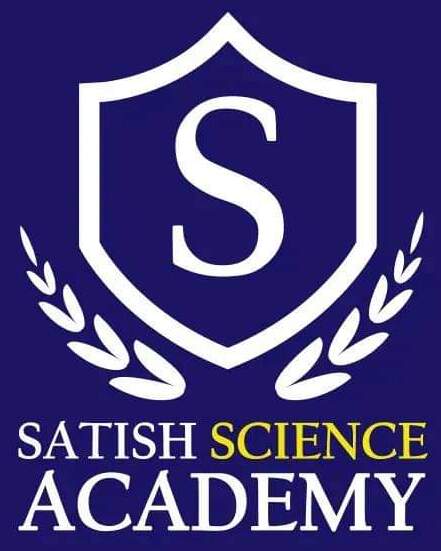9th Maths & Science: NCERT solution , Chapter wise Worksheet & Smart Study Tips
Introduction : Class 9 Maths and Science Curriculum
Why Class 9 is a Turning Point in Academic Learning
9th Maths and 9th Science are often regarded as pivotal subjects in a student’s academic journey. They lay the foundation for higher classes, helping students build critical problem-solving skills, logical reasoning, and conceptual clarity essential for board exams and competitive tests. It serves as the foundation for Class 10 board exams and future competitive exams such as JEE, NEET, NTSE, and Olympiads. The concepts introduced in Class 9 mathematics and science are more advanced than previous classes and act as the building blocks for higher secondary education and specialized subject understanding.
From real numbers to algebraic expressions in mathematics, and from fundamental laws of motion to the structure of atoms in science, Class 9 marks the beginning of abstract thinking and logical reasoning. Students who master Class 9 concepts are often better equipped to handle the rigor of Class 10 and beyond.
A solid grasp of the Class 9 syllabus enhances analytical ability and lays the groundwork for academic success in both board and entrance exams.

Importance of Building a Strong Foundation for Board and Competitive Exams
Success in Class 10 board exams and competitive exams is largely determined by how well students have understood the concepts in Class 9. Topics such as linear equations, geometry, motion, atoms, and molecules introduced in this class are revisited and expanded upon in higher classes.
Competitive exams like:
- JEE (Joint Entrance Examination) test knowledge of Class 9 and 10 concepts in Physics and Mathematics
- NEET (National Eligibility cum Entrance Test) includes Class 9 Biology and Chemistry fundamentals
- Olympiads and NTSE (National Talent Search Exam) heavily feature Class 9 syllabi in their question sets
A weak understanding at this stage can lead to conceptual gaps that make future learning difficult. Early mastery through NCERT books, practice worksheets, and guided tutoring can make a significant difference in a student’s academic journey.
Board-specific Syllabus Overview (CBSE, ICSE, State Boards)
CBSE (Central Board of Secondary Education):
CBSE follows NCERT textbooks for Class 9. The curriculum is structured to develop analytical thinking, problem-solving skills, and practical application of concepts. The Math’s textbook includes 15 chapters ranging from Number Systems to Probability, while the Science book is divided into Physics, Chemistry, and Biology sections, covering topics like Matter, Motion, and Cells.
ICSE (Indian Certificate of Secondary Education):
The ICSE curriculum is relatively broader and more detailed than CBSE. While it shares similarities in core concepts, it demands a deeper understanding and emphasizes language precision, diagrammatic representation, and experiments in science.
Maths topics include advanced geometry and algebra. Science includes detailed chapters on Physics (electricity and magnetism), Chemistry (chemical reactions), and Biology (cell division, nutrition).
State Boards (Maharashtra, Tamil Nadu, etc.):
Each state board has its own curriculum but largely follows the NCERT framework. The difficulty level may vary slightly, but foundational topics remain consistent with national standards. Students studying under state boards can also benefit from NCERT-based learning resources for enhanced preparation.

2. What’s Inside the NCERT Maths Book for Class 9? A Chapter-by-Chapter Look
The NCERT Class 9 Maths textbook is designed to help students build a strong conceptual foundation in mathematics. Carefully structured as per CBSE guidelines, the book introduces essential topics that are not only relevant for 9th class exams but also form the basis for Class 10 board preparation and competitive exams like NTSE, JEE Foundation, and Olympiads.
The 9th maths textbook follows a logical sequence, starting from basic number systems to more complex concepts like probability and geometry. Each chapter is supported by a variety of solved examples, in-text questions, and exercises that enhance clarity and problem-solving skills.
Importance of NCERT Maths Book for Class 9 Preparation
- Standardized content approved by CBSE
- Conceptual clarity with step-by-step solutions
- Simple language, ideal for self-study
- Supports 9th science topics by improving analytical thinking
- Foundation for Class 10 board and entrance exam preparation
Many schools across India recommend NCERT maths class 9 book as the primary resource. It’s also the benchmark text for state boards and exam authorities, making it a universally accepted curriculum reference.
3. Complete Chapter-wise Analysis of Class 9 Maths NCERT Book
To help students navigate the syllabus better, here is the chapter-wise structure of the 9th class Maths NCERT book:
Chapter 1: Number Systems
- Introduction to rational, irrational, and real numbers
- Properties of exponents and laws of indices
- Revision of the number line
Chapter 2: Polynomials
- Algebraic identities
- Degree of a polynomial
- Factorization techniques and remainder theorem
Keywords: ch 2 math class 9, class 9 mathematics chapter 2
Chapter 3: Coordinate Geometry
- Cartesian plane and plotting points
- Coordinates of a point in a quadrant
- Applications in geometry
Chapter 4: Linear Equations in Two Variables
- Graphical method of solutions
- Applications in real-life situations
Chapter 5: Introduction to Euclid’s Geometry
- Definitions, axioms, and postulates
- Euclid’s contribution to geometry
Chapter 6: Lines and Angles
- Types of angles and intersecting lines
- Angle properties and theorems
Chapter 7: Triangles
- Types of triangles
- Congruence rules
- Pythagoras theorem and inequalities
Chapter 8: Quadrilaterals
- Types and properties of quadrilaterals
- Theorems on parallelograms and mid-point theorem
Chapter 9: Areas of Parallelograms and Triangles
- Base-height formula
- Area conservation and derivations
Chapter 10: Circles
- Chords, arcs, tangents
- Angle subtended by arc
- Cyclic quadrilaterals
Chapter 11: Constructions
- Angle bisectors and perpendicular bisectors
- Geometric tools and accuracy
Chapter 12: Heron’s Formula
- Calculation of triangle areas using side lengths
- Real-life applications in geometry
Chapter 13: Surface Areas and Volumes
- 3D shapes: Cube, cuboid, cylinder, cone, and sphere
- Surface area and volume formulas with examples
Chapter 14: Statistics
- Data collection and presentation
- Mean, median, and mode
Chapter 15: Probability
- Experimental probability
- Real-life examples and theoretical understanding
This structured progression of topics ensures that students gradually advance from simple arithmetic to complex algebraic and geometric concepts. Practicing 9th maths regularly helps students gain the confidence to handle problem-solving questions in both Maths and 9th Science, especially where calculations are involved.

NCERT Solutions for Class 9 Science
Understanding science in Class 9 lays the groundwork for higher-level studies in physics, chemistry, and biology. NCERT solutions for Class 9 Science are carefully crafted to ensure conceptual clarity and exam-oriented preparation. These solutions are directly aligned with the latest CBSE curriculum, making them essential for scoring well in school exams and developing scientific thinking.
Subject-wise Breakdown
Physics: Topics like motion, force, laws of motion, and gravitation are simplified with clear definitions, solved numerical problems, and real-world examples to make understanding intuitive.
Chemistry: Focused on matter, atoms, molecules, and the structure of the atom, the NCERT Chemistry solutions help students visualize concepts using illustrations, formulae, and logical reasoning.
Biology: From cells to tissues and diversity of living organisms, the NCERT Biology section enhances memory and comprehension through diagrams and flowcharts.
Why NCERT Solutions are Important for 9th Science
- Strict adherence to the CBSE syllabus
- Step-by-step, accurate answers that improve writing skills
- Supports critical thinking and concept retention
- Helps in competitive exams like NTSE, Olympiads, and NEET foundation
These solutions also complement the skills learned in 9th maths, especially in Physics where calculations, units, and data interpretation are involved.
RD Sharma vs NCERT – Which is Better for 9th Class Maths?
One of the most frequently asked questions by students and parents is: Should we focus more on RD Sharma or NCERT for Class 9 Maths?
RD Sharma – Ideal for Concept Mastery and Competitive Prep
The RD Sharma Maths book for Class 9 is an in-depth resource filled with extensive solved examples, multiple question types, and concept-expanding exercises. It is particularly helpful for students aiming to appear in national-level exams such as NTSE, JEE Foundation, and Olympiads.
NCERT – Perfect for Curriculum Mastery and Exam Readiness
NCERT Maths textbook remains the standard guide for CBSE Class 9 exams. It covers fundamental concepts clearly and concisely, with solved examples and well-graded exercises. The textbook ensures that students meet all curriculum requirements.
How to Balance Both for Success in 9th Maths
- Start with NCERT to grasp basics and ensure curriculum coverage
- Use RD Sharma for extra practice and deeper understanding of complex topics
- Revise using NCERT problems before school assessments and final exams
Together, NCERT and RD Sharma create a strong combo for mastering 9th class mathematics. NCERT gives structure, while RD Sharma builds depth.
Focus Keywords: 9th maths, 9th class RD Sharma, 9th mathematics guide
Complete Guide to Class 9 Science NCERT Book and Reference Materials
The Class 9 Science textbook by NCERT is a comprehensive resource developed by subject matter experts under the guidance of the National Council of Educational Research and Training. It is designed to help students understand basic scientific principles and apply them to real-world situations.
What’s Covered in the NCERT Class 9 Science Book?
- Physics Chapters:
- Motion
- Force and laws of motion
- Gravitation
- Work and energy
- Sound
- Chemistry Chapters:
- Matter in our surroundings
- Is matter around us pure?
- Atoms and molecules
- Structure of the atom
- Biology Chapters:
- The fundamental unit of life (cells)
- Tissues
- Diversity of living organisms
- Why do we fall ill?
- Natural resources
- Improvement in food resources
Benefits of Using NCERT for 9th Science Preparation
- Written in simple language with illustrations and examples
- Helps in building analytical skills and scientific attitude
- Aligned with real-world applications and NEP 2020 goals
- Prepares students for class tests, final exams, and entrance exams
Other guides like Lakhmir Singh & Manjit Kaur, Together With, and Exam Idea can be used for practice questions, sample papers, and quick revisions, but NCERT remains the core book for syllabus mastery.
Additionally, many science concepts involve numerical applications that reinforce learning in 9th maths, such as formulas, data analysis, and graphs.
Complete Guide to Class 9 Science NCERT Book and Top Reference Materials
The Class 9 Science curriculum is designed to ignite curiosity and build a strong foundation in Physics, Chemistry, and Biology. The NCERT Class 9 Science book is structured to gradually introduce scientific concepts while helping students understand how they apply to real-world situations.
Chapter Highlights in Class 9 Science
The book is divided into three major disciplines:
- Physics: Motion, Force, Laws of Motion, Gravitation, Work and Energy, Sound
- Chemistry: Matter in Our Surroundings, Is Matter Around Us Pure?, Atoms and Molecules, Structure of the Atom
- Biology: The Fundamental Unit of Life (Cells), Tissues, Diversity in Living Organisms, Health and Disease, Natural Resources
Each chapter includes key definitions, scientific laws, activity-based learning, and conceptual questions that promote deep understanding.
Real-World Relevance of NCERT Science Book
NCERT integrates real-life applications of science through relatable experiments, case studies, and environmental context. Whether it’s calculating the speed of a moving object (linked to 9th maths) or understanding how cells function in our body, students are encouraged to connect theory with day-to-day experiences.
Additionally, popular guidebooks like Lakhmir Singh & Manjit Kaur or Together With Science offer additional questions, HOTS problems, and sample papers to reinforce NCERT learning and help in exam preparation.
Worksheets for Class 9 Maths – Chapter-wise Practice PDFs
To master 9th maths, regular practice is essential. One of the most effective ways to reinforce learning is through chapter-wise worksheets, which help students practice questions of all difficulty levels and test their understanding in a structured manner.
Free Downloadable Worksheets for Every Chapter
Each worksheet covers:
- Covers beginner to advanced-level questions based on the NCERT Class 9 Maths syllabus
- Includes both multiple-choice and descriptive problems with dedicated space for rough work
- Multiple formats such as fill in the blanks, MCQs, word problems, and reasoning-based questions
Worksheets are categorized chapter-wise, covering topics such as:
- Number Systems
- Polynomials
- Linear Equations
- Geometry
- Mensuration
- Statistics and Probability
These worksheets serve as the perfect tool to build problem-solving stamina and support concepts also used in 9th science—especially Physics-based numerical problems.
Chapter-wise NCERT Solutions for Class 9 Maths with Detailed Explanations
A major challenge students face in 9th maths is solving complex problems in a step-by-step, error-free manner. That’s where NCERT Maths solutions come in.
How NCERT Solutions Simplify Learning
- Comprehensive solutions for every NCERT Class 9 Maths exercise, explained step by step
- Covers every chapter including Polynomials, Triangles, Surface Areas, and Volumes
- Highlights logic, formulae, and justification for each step taken in problem-solving
- Supports school exam preparation and foundational understanding for competitive exams
These solutions also help students grasp problem-solving techniques they can apply in 9th science, particularly Physics chapters involving mathematical calculations like Work and Energy or Motion.
Tips and Tricks to Crack Class 9 Maths Easily
Cracking 9th class maths doesn’t require rote memorization—it requires smart strategies, conceptual understanding, and consistent revision.
Top Strategies to Master Class 9 Maths
- Shortcut Methods: Use mathematical tricks for quick calculations (like squaring numbers, factorization, etc.)
- Memory Aids: Create formula charts and flashcards for quick revisions
- Concept Visualization: Use graphs, diagrams, and real-life examples to understand algebra and geometry better
- Revision Schedule: Follow a weekly study planner that includes practice time, formula revision, and doubt-clearing
- Solve Application-Based Questions: Strengthen real-world problem-solving skills, especially helpful in Physics topics in 9th science
Smart preparation not only makes 9th maths easier but also boosts your overall academic confidence across subjects.
Enroll Now – Expert Coaching and Doubt Support for Class 9 Students
Looking to master 9th Maths and 9th Science with confidence? Join the foundation course at Satish Science Academy, specially designed to strengthen core concepts and improve academic performance in Class 9.
Why Choose Satish Science Academy for Class 9 Coaching?
- Expert-Led Coaching: Learn from highly qualified and experienced subject experts who specialize in CBSE, ICSE, and State Board curriculums.
- Focused Curriculum: Our structured program covers every topic in 9th class maths and 9th science, aligned with NCERT textbooks and exam patterns.
- Doubt-Solving Support: Dedicated weekly sessions to clear student doubts in real-time — both in-person and online.
- Weekly Tests and Progress Analysis: Regular assessments with feedback to help students track improvement and prepare better for school exams.
- Hybrid Learning Flexibility: Attend classes online or offline as per your convenience, with access to recorded sessions and study materials.
- Foundation for Competitive Exams: Our coaching also builds early concepts essential for exams like NTSE, Olympiads, and future JEE/NEET foundations.
Whether you’re struggling with algebra in 9th maths or need clarity in topics like motion or cell structure in 9th science, this course offers personalized guidance every step of the way.
Limited Seats Available – Enroll Today
Call 8830597066 now to register and get started on your academic success journey with Satish Science Academy. Don’t miss this chance to unlock your true potential in Class 9.
1. Why is Class 9 important for building a strong foundation in maths and science?
Class 9 introduces critical topics in both maths and science that act as the base for Class 10 board exams and entrance tests like NTSE, Olympiads, JEE, and NEET. A solid understanding of 9th maths and 9th science ensures long-term academic success.
2. What topics are covered in the Class 9 NCERT Maths syllabus?
The 9th maths NCERT syllabus includes Number Systems, Polynomials, Linear Equations, Coordinate Geometry, Triangles, Circles, Surface Areas, Volumes, Statistics, and Probability.
3. What subjects are included in 9th Science and how are they structured?
Class 9 Science is divided into three core subjects:
- Physics (Motion, Force, Work & Energy, Sound)
- Chemistry (Matter, Atoms, Molecules, Structure of Atom)
- Biology (Cell, Tissues, Living Organisms, Health, and Environment)
The NCERT book ensures balanced learning of theory, experiments, and real-life application.
4. Are NCERT books enough for Class 9 Maths and Science preparation?
Yes, NCERT books are essential for mastering the CBSE syllabus of 9th maths and 9th science. For additional practice, reference books like RD Sharma (for maths) and Lakhmir Singh (for science) help strengthen problem-solving skills.
5. How can Satish Science Academy help in mastering 9th class maths and science?
Satish Science Academy offers expert coaching for 9th maths and 9th science with live + recorded classes, doubt sessions, chapter-wise tests, and personalized mentorship. Their foundation course ensures deep conceptual clarity and consistent practice.
6. What is the teaching methodology followed for 9th class students at SSA?
SSA uses a hybrid teaching model with live interactive sessions, recorded video lectures, chapter tests, detailed notes, and one-on-one doubt-clearing for both maths and science. The learning approach is student-centric and result-driven.
7. How does SSA prepare students for school exams in 9th maths and science?
The academy prepares students through NCERT-aligned content, concept-based learning, regular testing, and previous year question paper practice. 9th class students benefit from targeted training for exams and concept-building in both subjects.
8. Can I attend classes online for 9th maths and science coaching?
Yes. SSA offers online, offline, and hybrid modes of learning. Students can access live classes, recorded sessions, PDFs, and digital worksheets for 9th maths and 9th science from the comfort of their home.
9. Are there practice worksheets available for every chapter in 9th maths?
Yes. SSA provides free downloadable worksheets for every chapter in Class 9 maths, covering topics from Number Systems to Probability. Worksheets include basic to advanced problems and are ideal for daily practice.
10. What makes SSA different from other tuition centers for Class 9 students?
SSA is a subject-specialized coaching center with a focus on excellence in maths and science. Students get personal mentoring, doubt-solving support, performance tracking, and training for future competitive exams—something generic tuitions lack.
11. How can I improve my weak areas in 9th maths and 9th science?
SSA conducts weekly assessments to identify weak topics. Targeted revision sessions, extra practice sets, and doubt-clearing classes help students strengthen their weak areas in 9th class maths and science effectively.
12. Should I study RD Sharma in addition to NCERT for Class 9 Maths?
Yes. While NCERT is mandatory, RD Sharma provides extra questions for deeper practice. SSA integrates both books into its curriculum to help students tackle complex problems and improve mathematical accuracy.
13. Are weekly tests conducted for Class 9 students at SSA?
Yes. SSA conducts weekly and monthly tests in both 9th maths and science to monitor student progress, enhance retention, and prepare them for school exams and internal assessments.
14. How do I enroll for the Class 9 foundation batch at SSA?
For enrollment, contact us at 8830597066 or drop by the Satish Science Academy campus. You’ll receive a complete overview of the course, including subject coverage, timings, online access, and batch availability for Class 9 maths and 9th science coaching.
15. What is the fee structure for Class 9 Maths and 9th Science coaching at SSA?
SSA offers affordable foundation course plans for Class 9 students, including access to expert faculty, live/recorded lectures, test series, and study material. Call 8830597066 to get details on course fees and discounts.







